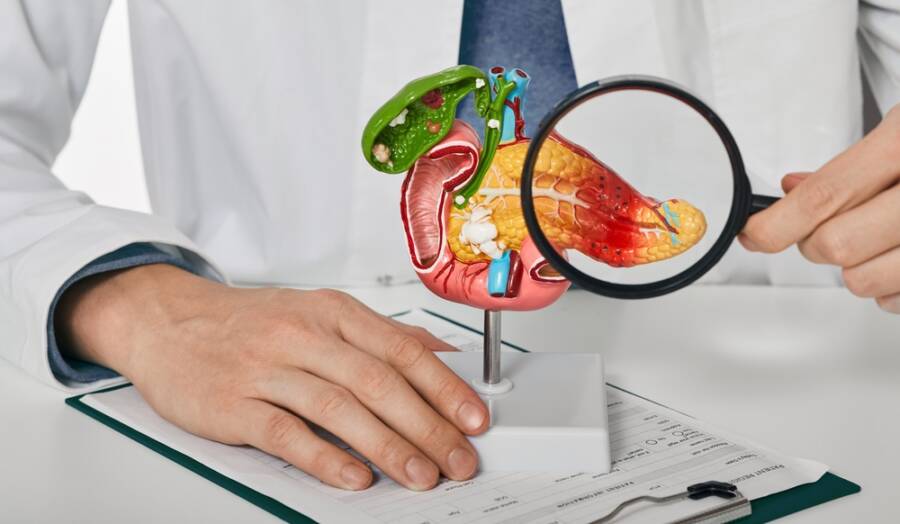Sadly, heart disease is the number one cause of death in our country, causing more than 655,000 fatalities in our country every single year.
This means that every year, one in four deaths in America are caused by heart problems.
Since this range of illnesses is so common, our society has created many myths people believe.
Some may be drugs that ‘miraculously’ cure heart disease, while others may be just lies about what harms us and what doesn’t.
Knowing the difference between fact and fiction is crucial in order to adopt a healthy lifestyle. Many of the choices we think are beneficial for our health may actually cause more harm than good.
If you’re healthy right now, that’s great! However, I think we all know at least one person who’s at risk for heart disease (or already dealing with one).
This is why I think knowing these 7 heart disease myths is so important. We must protect ourselves and our loved ones, so let’s find out the truth!

Myth #1: Cardiac arrest = heart attack
Many people mistake a heart attack for a cardiac arrest when they’re totally different.
Knowing the difference in terms of symptoms is crucial to detect each one early and get immediate help. Here’s the deal:
A heart attack means that a heart artery is blocked, thus restricting the blood flow to the heart. When your heart stops receiving enough blood and oxygen, parts of the muscle start dying. This is a blood circulation problem that requires immediate assistance.
A cardiac arrest occurs when your heart stops sending blood towards the rest of the body, therefore restricting breathing. This emergency situation requires CPR and it’s an electrical problem.
Many times, a heart attack can trigger a cardiac arrest because when the heart stops receiving blood, it beats irregularly, thus sending less blood than needed to the rest of the body.
ATTENTION! Both heart attack and cardiac arrest are emergency situations that require immediate medical assistance, so call 911 as soon as possible if you or a loved one experience irregular heartbeat, chest pain or difficulty breathing.
Myth #2: Some heart attacks are minor
During a heart attack, parts of the heart muscle are dying. Some people’s heart is more affected than others’ depending on the length and cause of the episode.
However, there is no such thing as a ‘minor’ heart attack. Let me explain.
There are two types of heart attacks:
- STEMI: This means that the main artery sending blood to the heart is blocked completely.
- NSTEMI: It means that there’s only a partial blockage in one of the arteries sending blood.
NSTEMI, or partial blockages, are considerably more common than total blockages. Both types of heart attacks can be managed if you get medical assistance on time.
Although STEMI heart attacks cause more damage to the heart in the long run (and may require different treatments), both types of heart attacks are serious and you should always follow your doctor’s advice.
Myth #3: Heart failure = your heart stops beating
This is probably the most common myth regarding heart disease: that heart failure equals death.
Unfortunately, millions of people must learn to live with heart failure for the rest of their lives. Why?
Because heart failure simply means that your heart isn’t pumping blood as it normally would. This can happen due to a cardiac arrest, a heart attack or another condition that damages the heart muscle.
A heart failure can happen in a matter of seconds (due to a heart attack, for instance) or it can be the result of years of living with a certain illness.
The simplest ways of preventing heart failure is to live a balanced lifestyle that includes a healthy diet and moderate physical activity.

Myth #4: Coughing during a heart attack is life-saving
‘Cough CPR’ is a practice that increased in popularity surprisingly much recently. Not only is it not helpful, but focusing on this technique instead of getting (or offering) actual help can cost a person’s life.
The ‘cough CPR’ technique suggests that if you’re experiencing symptoms of a heart attack, coughing vigorously might stop the event and save your life.
As much as we’d like this theory to be true, it has never been medically approved and it’s most likely not working. There’s just no medical connection between coughing and the artery blockage which causes heart attacks.
If you’re having a cardiac arrest, for instance, you will most likely become unconscious fairly quickly; even if you stay conscious for longer (and therefore not in cardiac arrest yet), you still need immediate medical assistance.
Myth #5: Active people can’t have heart diseases
As I was saying earlier, living a healthy lifestyle is definitely a key factor to prevent heart disease in the long run.
Sadly, though, it doesn’t mean that it can protect you 100% from the dangers of heart illnesses.
Some people are genetically more prone to certain heart diseases, while others may have a medical history which increases their risk of developing heart conditions.
Also note that researchers are still discovering many things that can affect your heart, so living a healthy lifestyle is definitely not the ultimate key to staying protected.
However, it’s the only thing we can do to stay safe.
Myth #6: Statins can in fact damage your heart
Lately, statins have become more and more popular as many medical reviews confirm their efficacy.
In short, statins are a type of medication in the form of pills which can lower the cholesterol in your blood. The less cholesterol you have, the healthier your arteries become, thus reducing your risk of artery blockage (aka heart attack).
Many specialists are recommending statins to patients with a higher risk of heart attack or a cardiac arrest; people with diabetes might also be advised to take them because they have a higher risk of cardiovascular illnesses.
Just like any other type of medication out there, statins can also have unpleasant side effects. This has made many people refuse to follow this treatment and somehow developed a theory that they’re actually damaging the heart.
If you have any concerns regarding a certain treatment, it’s best to discuss them with your doctor and pharmacist because they’re the only people qualified to give the right answers.
Myth #7: Men are more often affected by heart disease
Many people still believe that men are more prone to developing a heart disease at some point in their lives than women.
Unfortunately, heart disease is affecting almost the same amount of women as it does men.
For example, coronary heart disease is causing more than 50% more fatalities in women than breast cancer! This is just one example showing how much attention we should pay to our heart health regardless of gender.
If you mistakenly believe that you’re less likely to get a heart attack, you might fail to call 911 on time as you’d miss the symptoms of this condition.
Knowing the signs
One of the reasons why people are struggling with heart conditions is that they don’t recognize the first signs of these illnesses when they appear.
Knowing the main symptoms of cardiovascular disease is the most important thing you can do to keep yourself (or a loved one) healthy.
With that in mind, I’m going to list the most common signs something’s wrong with your heart below:
- A fluttering sensation in your chest
- Shortness of breath
- Dizziness
- Sudden racing heartbeat
- Right shoulder pain
Note that many of these signs can also show up due to other conditions including panic attacks. Either way, if you’re experiencing one or more of the symptoms listed above, the best thing you can do is call your doctor and get a checkup.

How can you keep your heart healthy?
When they find out that heart disease can’t be entirely prevented, many people get discouraged and make unhealthy lifestyle choices believing that they can’t make a difference anyway.
That’s one of the worst things you could ever do.
Although you can’t prevent heart disease 100% due to factors like genetics or medical history, there’s plenty you can do to reduce the risks and complications!
Here are some of the most notable things you can do:
- Sleep well. Sleeping is probably the easiest, most affordable and the most comfortable thing you can do for a healthy heart! Try to get at least 7 hours of uninterrupted sleep per night to give your body the opportunity of resting and repairing itself. If you’re having trouble sleeping, these 9 foods and drinks may help.
- Maintain dental hygiene. Multiple studies showed that unhealthy gums allow bacteria to enter the bloodstream and increase your levels of C-reactive protein, which is a sign of inflammation in your arteries and blood vessels. Maintaining good oral hygiene is another easy step to prevent heart disease.
- Stay active. It might be easier said than done, I know – especially after years of pandemic life stuck at home. However, doing at least 30 minutes of physical activity daily can be literally life-saving; note that even intense house-cleaning and walking count as physical activities, so there’s no excuse not to get moving right now!
Improving your diet
Regardless if you’ve already been diagnosed with a form of cardiovascular disease or not, adopting the right diet can prevent complications in the long run.
But with so many foods and misleading advertisements, how can you know for sure which foods are truly beneficial for your heart?
When it comes to whole foods, here are the ones specialists all over the world swear by:
- Avocado
- Berries
- Fatty fish (salmon, tuna)
- Dark chocolate (yay!)
- Leafy greens (spinach, collard greens, kale)
- Whole grains
I want to pause for a second here and talk about whole grains because too many people get fooled. Many packaged products like bread or cereal have labels such as ‘Made with whole grains’ which can be a huge trap.
What about supplements?
The industry of supplements has exploded recently; some products can increase your nutritional intake naturally, which improves your heart health and immunity. Others can unfortunately do more harm than good.
The worst part is that almost every supplement out there seems to hold the ‘miracle formula’ that improves your health – so how can you tell the difference?
Well, there’s only one correct answer: always verify the information you’re reading on the label and listen to experts’ advice. Discuss every supplement with your doctor before starting to take it and see if it really benefits your heart health.
Our experts have written an in-depth post about heart supplements, from figuring out which ones are healthy to keeping your heart pumping for decades, so check it out!
Your heart matters the most…
…but since the body is such a complex machine, keeping all the other organs healthy is crucial for preserving your heart health as well.
In other words, you can’t have a healthy heart and a malfunctioning liver, for instance. Once again, having the right diet and avoiding damaging habits can make the difference and even add extra years to your lifespan.
Not sure where to start? Here is one of our top posts that helped readers make healthier choices in simple, affordable ways: Warning: These 10 Foods Can Give You Terrible Heartburn
Before you go… have you or a loved one been diagnosed with a cardiovascular disease? If so, share your journey in the comment section to help other readers in our community stay hopeful and healthy! Thank you!














One Response
Thanks for this article. Although short on detail (like most articles), in general, it advises us to diligent to a number of issues. I am an 80 yo retired chemical engineer who spent most of his career with thermoplastic elastomers and engineered materials compounding. I have had my share of liquid and gaseous exposures. In 2010 I was in an ambulance, headed to the hospital with a gastrointestinal issue (turned into diverticulitis) and was declared by the EMT to be having a “heart event”. I was switched to another ambulance and sent to Emory Hospital Downtown (Atlanta) where upon 2 stents were implanted in an artery. After 3 years of follow-up the cardiac doctor released me. Nine years later, after leaving Emory and going to NGHS in Gainesville, my new cardiologist determines that I now have “afib” and over the past two years, it appears to be “maturing”. My weight is 245 (high BMI), have meds for blood pressure and I am still diabetic, but BS numbers have been good and no longer taking glimiperide. Oh and by the way, three years ago I was diagnosed with renal cell carcinoma in my right lung; presently taking an immunotherapy drug, Cabometyx. I lost my left kidney in 2005 from renal cell carcinoma. My heart may or may not be my most life threatening issue, but your article helped me put it in perspective. Thanks.